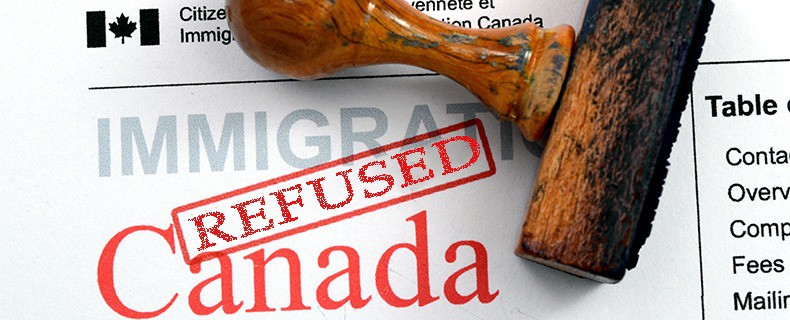
October 5, 2021
Two of the Most Dangerous Questions on Canadian Immigration Forms
Each year we see so many people who are facing misrepresentation allegations because they legitimately misunderstood a question on a temporary resident or permanent resident application form. Immigration, Refugees and Citizenship Canada (IRCC) maintain the questions are clear. I have heard it argued many times in Federal Court by Department of Justice lawyers.
But are they really that clear?
Well, before answering this question let’s remember the significant consequences of a misrepresentation finding which use to carry a two-year penalty. Section 40(1) of the Immigration and Refugee Protection Act (IRPA) reads:
40. (1) A permanent resident or a foreign national is inadmissible for misrepresentation
(a) for directly or indirectly misrepresenting or withholding material facts relating to a relevant matter that induces or could induce an error in the administration of this Act;
Section 40 (2) (a) of the IRPA sets out that an individual is now barred from Canada for five years and from applying for permanent residence also for five years.
(2) The following provisions govern subsection (1):
(a) the permanent resident or the foreign national continues to be inadmissible for misrepresentation for a period of five years following, in the case of a determination outside Canada, a final determination of inadmissibility under subsection (1) or, in the case of a determination in Canada, the date the removal order is enforced; and
[…]
(3) A foreign national who is inadmissible under this section may not apply for permanent resident status during the period referred to in paragraph (2)(a).
So, the penalty for a finding of misrepresentation is grave and when captured by a misrepresentation finding many immigration applicants have to dramatically alter their life plans and potentially that of family members as well. Few individuals can put their lives on hold for five years and/or still qualify five years later. Although the law requires a misrepresentation finding be made only when evidence is clear and convincing, the questions on forms are deemed beyond dispute. In other words, the questions are clear and concise and applicants should have no difficulty answering them accurately. However, this is simply not the case.
For example, on a study permit application form – IMM 1294 (06-2019) E the question at Box 2 (b) reads, “Have you ever been refused a visa or permit, denied entry or ordered to leave Canada or any other country or territory? So many clients miss the portion regarding “any other country or territory”? Instead of multiple questions in one, the questions should be divided and set out in plain language. Perhaps like:
- Have you ever applied to Canada for any type of immigration application for permanent or temporary residence (visit, study, work) visa or permit and been refused?
- Have you ever applied to anywhere in the world for any type of immigration application for permanent or temporary residence (visit, study, work) visa or permit and been refused?
When applicants who may have applied for a visitor, study or work permit then apply for permanent residence the forms can become even more confusing. The permanent resident application form – IMM 5669 (06-2019) E the question at Box 6 (d) reads, “been refused refugee status, an immigrant or permanent resident visa (including a Certificat de selection du Quebec (CSQ) or application to the Provincial Nominee Program) or visitor or temporary resident visa, to Canada or any other country or territory?
Now the question introduces refugee matters as well and makes reference only to visas and not permits. An applicant that was refused a study or work permit may interpret Question 6(d) as not applying to them as there is no mention of the word “permit” only visa. The terms study and work visas are not commonly used. This is also another example of asking multiple questions as one.
To me, this runs counter the stated purpose of eliciting information from applicants. It reads more like a trap. Again, this question could be broken down and simplified but this one requires several questions.
- Have you ever made a refugee claim in Canada?
- Have you ever been refused refugee status in Canada?
- Have you ever withdrawn or abandoned your refugee claim in Canada?
- Have you ever made a refugee anywhere in the world?
- Have you ever been refused refugee status anywhere in the world?
- Have you ever withdrawn or abandoned your refugee claim anywhere in the world?
- Have you ever made an application for permanent residence in Canada for an immigrant or permanent resident visa (including a Certificat de selection du Quebec (CSQ or application to the Provincial Nominee Program) and been refused?
- Have you ever you ever made an application for permanent residence anywhere else in the world and been refused?
- Have you ever applied to Canada for any type of temporary residence visa or permit (visit, study, work) and been refused?
- Have you ever applied to anywhere in the world for any type of temporary residence visa or permit (visit, study, work) and been refused?
Now others may come up with even better wording but the fact that two questions on the application forms resulted in twelve questions if broken down to be clearer and fairer illustrates the problem. Given the life changing consequences let’s ask questions that make sense and are clear to most people and stop what sometimes feels like a game of “gotcha”.
As always, thank you for reading and stay safe.
